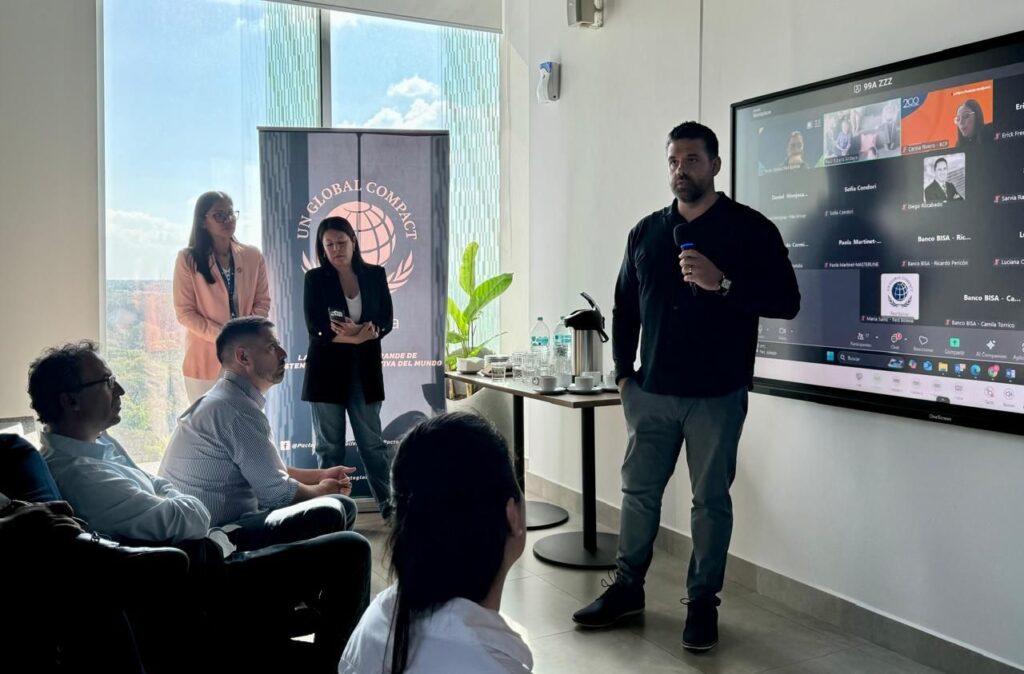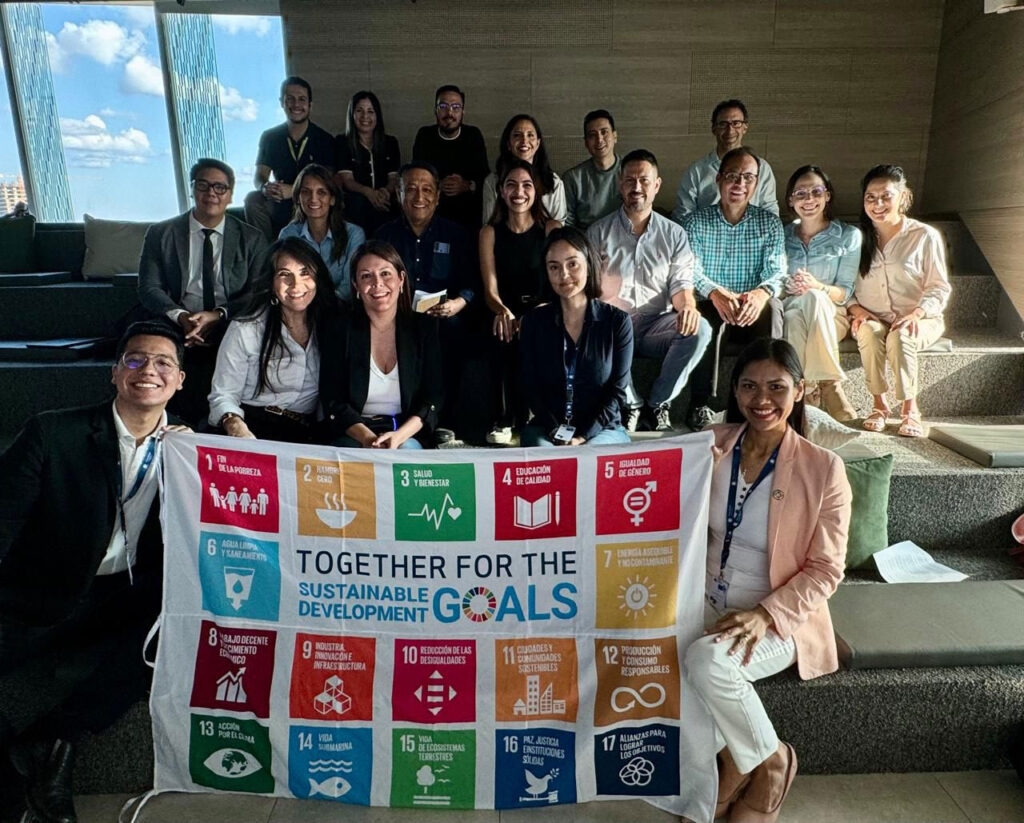The First Meeting
On July 23, 2025, an unusual but significant event took place: the first meeting of the United Nations Global Compact Artificial Intelligence (AI) Roundtable in Bolivia, attended by leading companies in the national economy such as Itacamba, Sinchi Wayra, Banco Bisa, Laboratorios Bagó, and technology companies such as DATEC and VIVA. Representing the Moreno Baldivieso law firm, I was privileged to participate in this initial meeting, which from the very first minute laid out the roadmap by forming initial groups.
While it is widely acknowledged that Bolivia has a long way to go in the field of technology and, in particular, in the field of artificial intelligence, the recent Global Compact AI Roundtable has shown a clear and significant commitment to closing that gap. The presence of the leaders of our largest companies participating in this roundtable, eager to address technological issues in Bolivia, sent a powerful message: Bolivia does not intent to be left behind.
The potential of AI is more than evident. A report prepared by academics at Stanford University in 2021 noted that AI has made significant progress in the last five years, despite the fact that, to date, there is no technology that can recreate human intelligence (Littman et al., 2021). However, AI presents considerable risks that can lead to discrimination, deepfakes, and even the potential for physical harm.

Opportunities in AI implementation: Productivity and Sustainable Development
In this initial approach, the AI Roundtable considered certain opportunities for Bolivian companies in terms of AI adoption and improving sustainability. The Roundtable addressed the following:
- Efficient management of natural resources: related to SDGs Nos. 6, 7, 12, and 13.
- Impact measurement and traceability: related to SDGs 9, 12, 13, and 16.
- Cleaner and smarter production: related to SDGs 9, 12, and 13.
- Sustainable logistics and supply chain: related to SDGs 9, 12, 13, and 17.
- Innovation in sustainable products and services: related to SDGs 8, 9, and 12.
- Organizational culture and sustainable decision-making: related to SDGs 12, 16, and 17.
- Sustainable finance and climate risk management: related to SDGs 8, 13, and 17.
If properly exploited by Bolivian companies, such opportunities would dovetail with the specific needs of Bolivia by building on its strengths. For instance, a company like Sinchi Wayra, which runs the biggest underground mines in Bolivia, could deploy AI systems to optimize extraction, enabling maximum yield with minimum water and energy usage and thus limiting environmental damage.
However, as emphasized at the outset, Bolivia lags far behind in terms of infrastructure and AI model development. Bolivia ranked last in the region in 2023 according to Índice Latinoamericano de Inteligencia Artificial (Centro Nacional de Inteligencia Artificial, 2023). For now, it is unrealistic to think that Bolivia should compete in this global race in which it seems that only the big players are allowed to participate. Nevertheless, the true value of AI for Bolivia lies not in global competition, but in its practical application to existing problems in key sectors and industries of the Bolivian economy.
Challenges in AI implementation: Ethical and Legal Risks
AI presents many challenges, perhaps more than we are willing to admit. Many authors have pointed out that algorithms are like ‘black boxes’, deliberately concealing their inner workings through layers of complexity and opacity (Dubber et al., 2020). This inevitably gives rise to algorithmic bias, discrimination, inequality, and well issues of transparency and explainability in AI systems.
Using AI poses direct challenges for sustainability due to its energy consumption and other direct and indirect consequences that could be related to environmental degradation. These challenges will have to be addressed through policies based on scientific evidence and a rational cost-benefit analysis that weighs the balance between technological development and sustainable development (Bashir et al., 2024).
That said, the path to implementing AI in Bolivia and new technologies in general should not be taken lightly. Rather, we must take advantage of all the benefits and opportunities that their implementation can offer us, and to this end, the Global Compact’s AI Roundtable stands out as a crucial first step towards responsible implementation.
Of course, this first step must be accompanied by a continuous, multisectoral dialogue at the national level, involving not only the private sector, but also academia and Bolivian civil society. Only through a process of dialogue will the foundations for effective and efficient governance of AI and new technologies in Bolivia be consolidated.

References
- Bashir, N., Donti, P., Cuff, J., Sroka, S., Ilic, M., Sze, V., Delimitrou, C., & Olivetti, E. (2024). The climate and sustainability implications of generative AI. An MIT Exploration of Generative AI. https://mit-genai.pubpub.org/pub/8ulgrckc
- Centro Nacional de Inteligencia Artificial. (2023). Índice latinoamericano de inteligencia artificial 2023. https://www.2023.indicelatam.cl/wp-content/uploads/2023/08/ILIA-2023.pdf
- Dubber, M. D., Pasquale, F., & Das, S. (2020). The Oxford handbook of ethics of AI. Oxford university press.
- Littman, M. L., Ajunwa, I., Berger, G., Boutilier, C., Currie, M., Doshi-Velez, F., Hadfield, G., Horowitz, M. C., Isbell, C., Kitano, H., & others. (2021). Gathering strength, gathering storms: The one hundred year study on artificial intelligence (AI100) 2021 study panel report. Stanford University. https://ai100.stanford.edu/sites/g/files/sbiybj18871/files/media/file/AI100Report_MT_10.pdf

